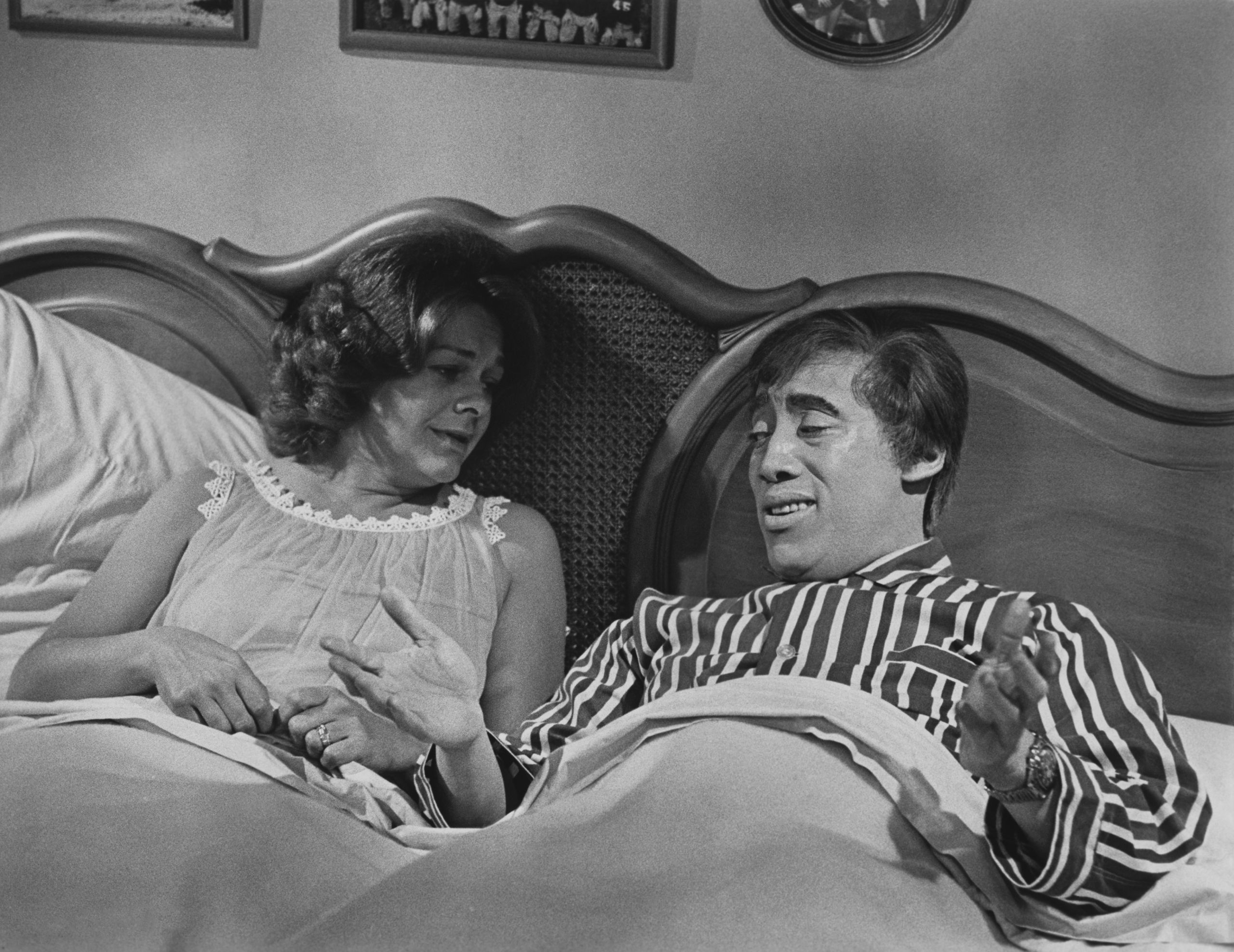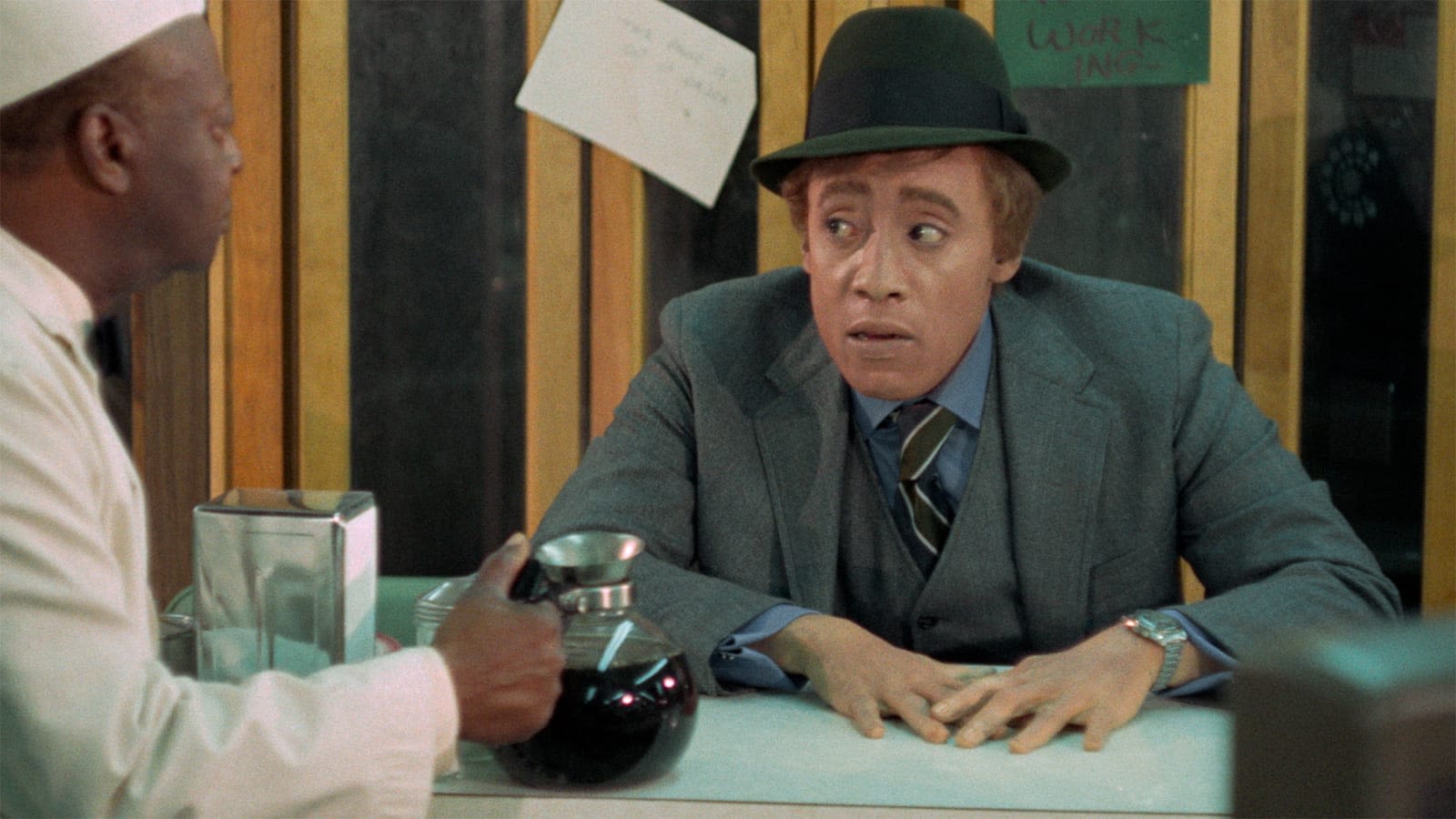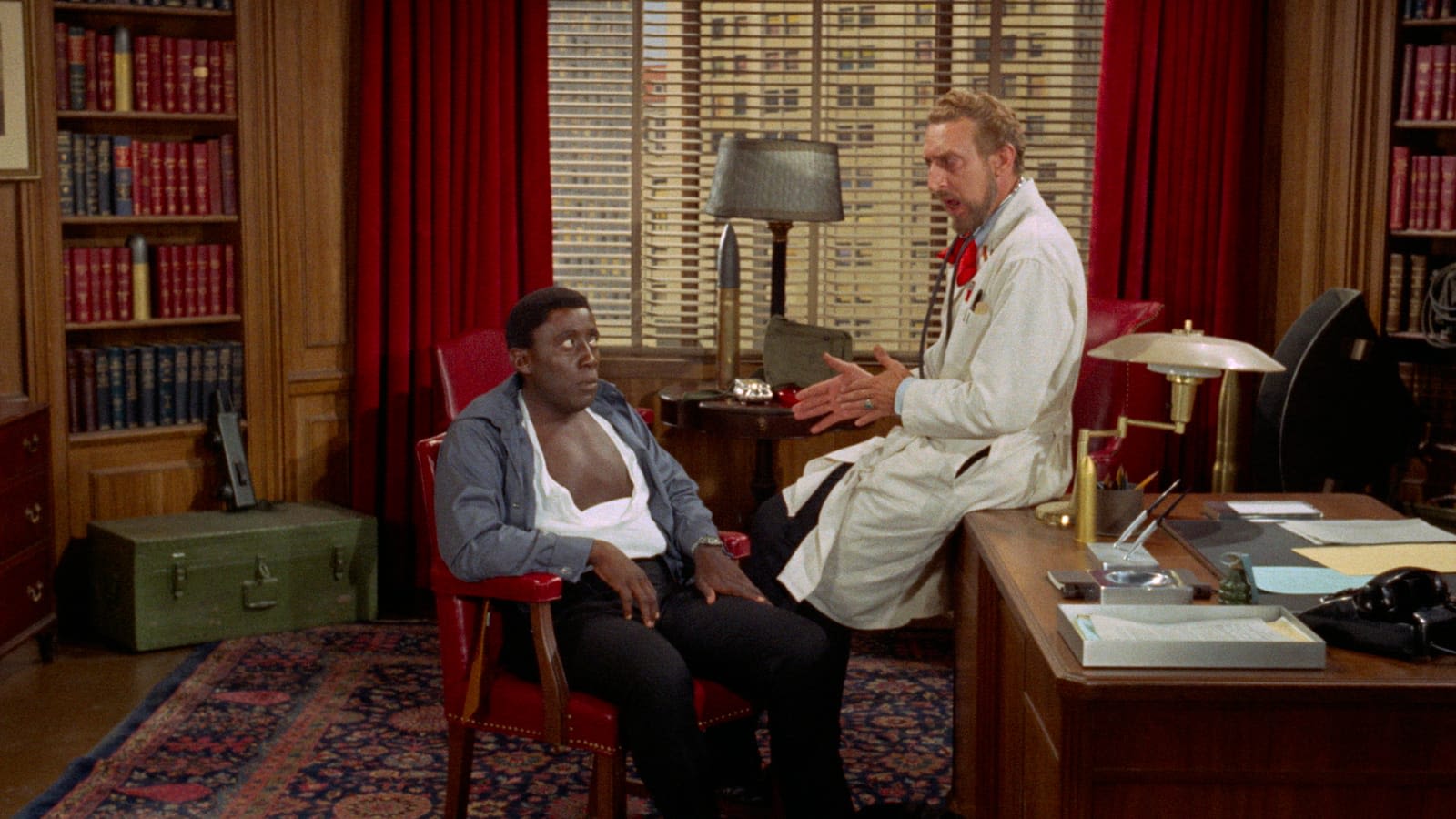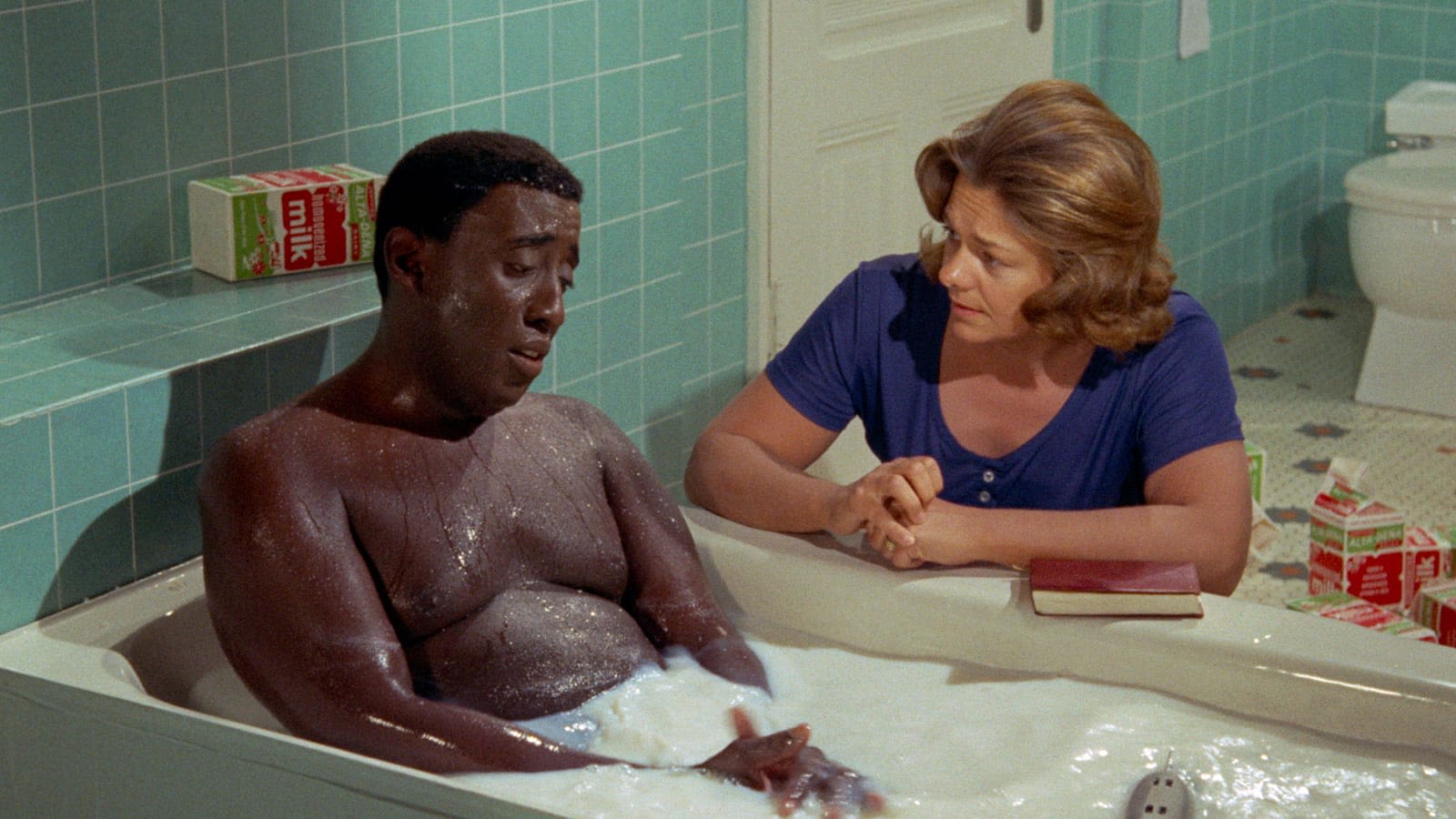ScreenNotes: Watermelon Man
Barbican Cinema curator Matthew Barrington explores the history behind this classic of 70s African American cinema, directed by legendary director Melvin Van Peebles.

'We place an exorbitant amount of weight on black film. Because there are so few of them, we always want them to mirror so many of our aspirations. This is understandable but it is also unfortunate, because all these stories cannot often be adequately told in the language of the cinema. The cinema cannot fully portray real life; but does this through its own cinematic languages.'
Melvin Van Peebles
The career of Melvin Van Peebles can be defined by his ability to navigate the restrictions of the film industry, and develop fiercely independent work, committed to using cinema to not only confront racial prejudice, but to encourage political agency, particularly within Black communities. Entering cinema at a time of burgeoning civil rights movements in the late 1950s, Van Peebles early career saw him move to Europe in order to develop his artistic voice, in a society he viewed as more open and appreciative of African American culture. Whilst in Paris he would make several short films, that would engage directly with everyday urban experiences in a verité style.
It would be in Paris that he would develop his debut feature, The Story of A Three Day Pass. The choice to shoot the film there was at once, artistic and tactical. Having lived there for the best part of a decade and learnt the craft of filmmaking alongside producing four novels and a collection of short stories, it was natural to want to create a film there. By shooting a film in Paris and adopting a visual style reminiscent of the burgeoning La Nouvelle Vague movement, Van Peebles, was detached from the limited expectations and opportunities open to African American filmmakers back home. Having been entered into the 1967 San Francisco Film Festival and billed as a French film, an American producer approached the director mistaking him to be European.

Still from 'Watermelon Man'
Still from 'Watermelon Man'
Van Peebles would return to America to work on his first studio picture for Columbia, which was based on a script called The Night the Sun Came Out on Happy Hollow Lane by screenwriter Herman Raucher. The film told the story of a white bigoted man who woke up one morning to find he had become Black and functioned as a satire on the hidden racist tendencies that Raucher had observed amongst his white liberal friends and colleagues. The producers at Columbia felt the film would benefit from having a Black director, given the film’s central theme.
Having been approached to direct the film, Van Peebles concept would differ from that of the screenwriter Raucher. Whereas Raucher had envisioned the film as a satire of White America, Van Peebles saw the film as embodying the ideologies of Black Power. This would affect the film in several ways, such as the hiring of comedian Godfrey Cambridge in the central role and crucially the film's conclusion. Raucher had originally wanted the protagonist, Jeff Gerber, to wake up and discover that the film's events had only been a dream, whilst Van Peebles, in keeping with developing the film in line with activist politics, argued for Gerber to slowly become more comfortable in his new body and eventually take to training Black workers in hand-to-hand combat, suggesting he had become a committed member of the emerging black power movement.

Still from 'Watermelon Man'
Still from 'Watermelon Man'
Watermelon Man can be seen as a rare example of a Hollywood film that tells a black-focused narrative, from a black perspective and which channels radical politics. Van Peebles, as an independent filmmaker, making what would be his only Hollywood film, is able to successfully balance, the expectations of the studio, with his own vision and political intentions for the film. This would sometimes come as a result of his idiosyncratic methods. One such example of this came in the conflict with the film’s screenwriter over the ending. With Raucher and Van Peebles at loggerhead, they agreed to shoot both versions of the disputed climax. Van Peebles would shoot his preferred ending first, then allegedly forgot to film the compromised ending by accident.
'Watermelon Man can be seen as a rare example of a Hollywood film that tells a black focused narrative, from a black perspective and which channels radical politics'
Elsewhere, Van Peebles would be permitted to record the soundtrack, giving him an extra degree of creative control. The soundtrack is filled with experimental and discordant jazz which deliberately subverts the ‘humour’ of the film resulting in a counter-cultural object. The lead single of the soundtrack Love, That's America, which contained lyrics such as “naw, this ain't America, you can't fool me" would decades later, become closely associated with the occupy movement in 2011.
Across the film Van Peebles plays with stereotypes of the American sitcom family, presenting them as an idealised nuclear unit. The normality of the family is off-set with the supernatural transformation of Jeff Gerber, whose racialised body ultimately destroys the family unit amidst increased racial tension which comes from both inside and outside the domestic space.

Still from 'Watermelon Man'
Still from 'Watermelon Man'
Van Peebles also critically engages with racial stereotypes across the history of Hollywood. The original plan for the film was to have a white actor (Jack Lemmon and Alan Arkin were both mentioned) then to have them spend most of the film in blackface. After coming on as the director, Van Peebles flipped this on its head by having the African American Godfrey Cambridge play the white Gerber by wearing whiteface. In doing so, subverting Hollywood’s deeply problematic use of blackface. Van Peebles directly quotes the racist tropes of Hollywood’s past, not only through his inclusion of whiteface, but also in his casting. Playing a small role as a counterman was the actor Mantan Moreland (who Spike Lee quotes in his own critique of blackface in Hollywood, Bamboozled), who had made a career in Hollywood across the 1930s and 1940s playing slapstick, stereotypical Black characters, which had by the 1950s and 1960s, become deeply demeaning to African American communities. His presence reflects the limited roles available to Black actors in early Hollywood and how the stigma of these roles prematurely ended their careers. Van Peebles' experiences of working with a major Hollywood studio, would ultimately convince him never to do so again.
Despite Columbia’s approval of the finished version and the financial success of the film, Van Peebles would seek to maintain his independence from Hollywood, carving out a career in independent cinema, that would be remembered best for Sweet Sweetback's Baadasssss Song. In wanting to keep his own voice and agency, Van Peebles would turn down a three-picture deal, offered to him by Columbia Pictures.
Watermelon Man (15) and Cinq cent balles, a rarely screened early short by Van Peebles, screens at the Barbican Cinema on Thursday 9 September.
About the author
Matthew Barrington is a cinema Curator for the Barbican. He has worked for the Manager of the Birkbeck Institute for the Moving Image, Essay Film Festival, and the London Korean Film Festival.